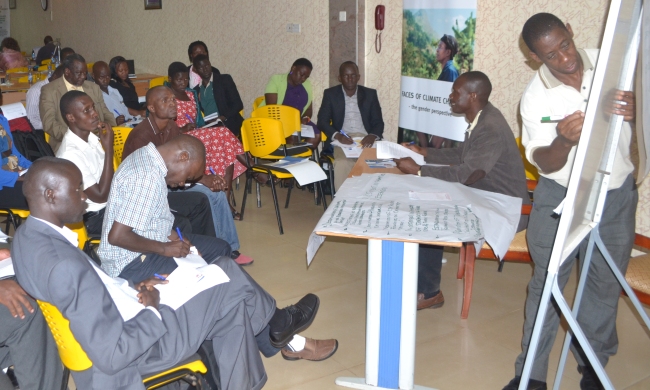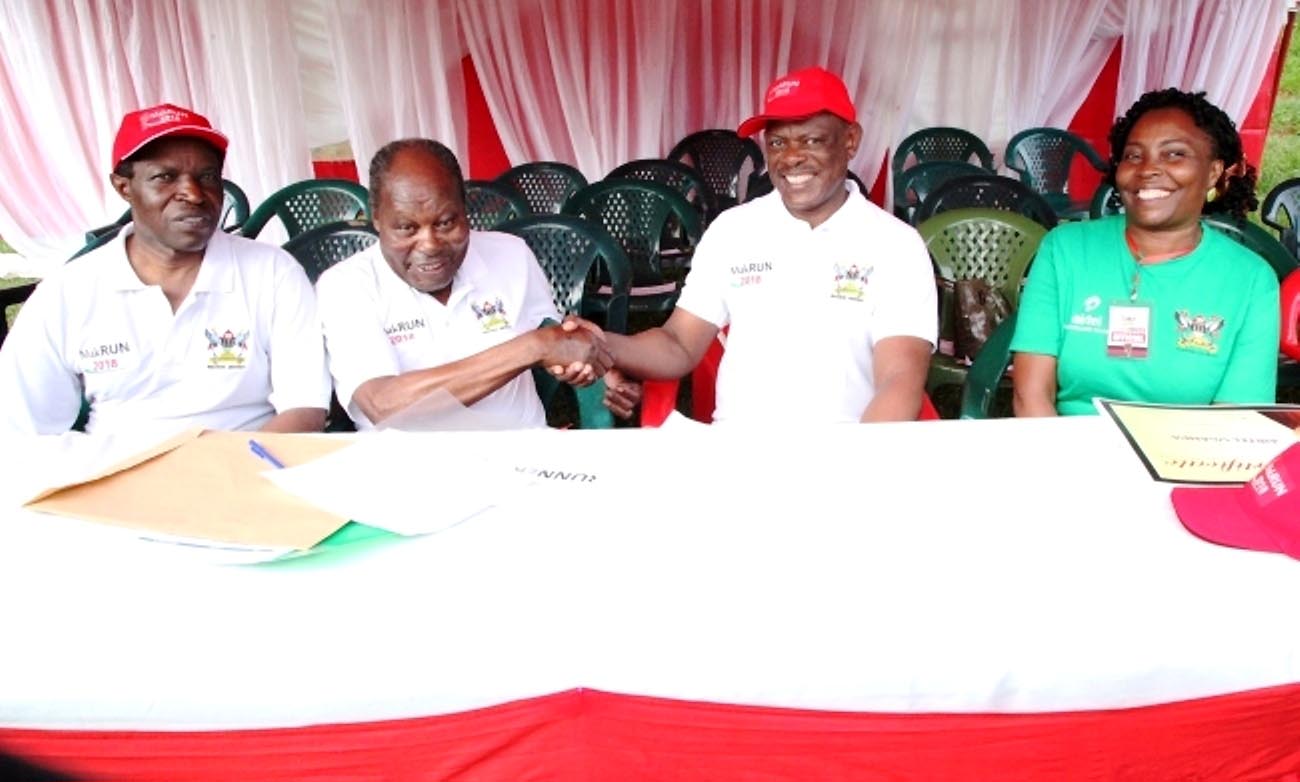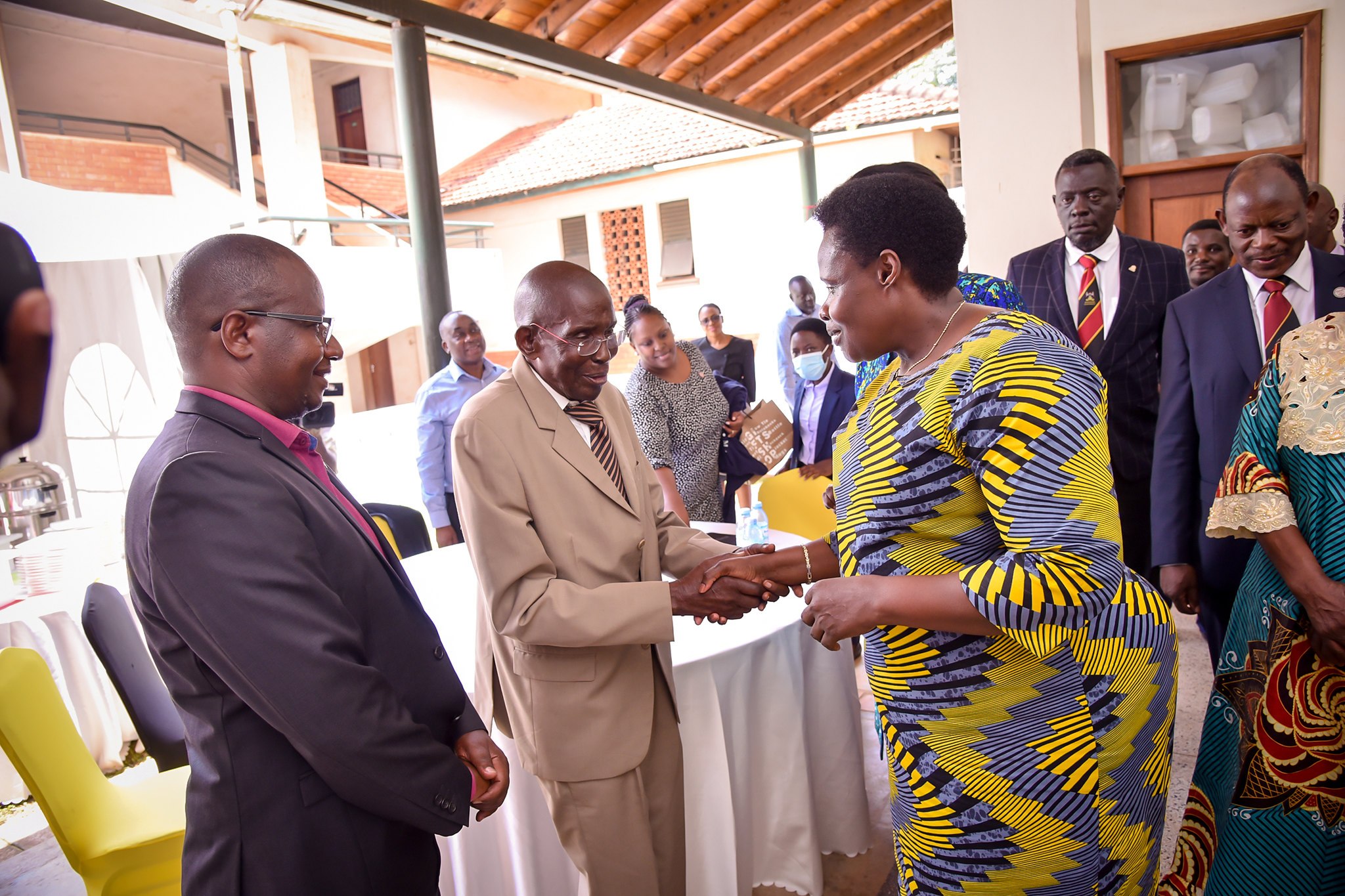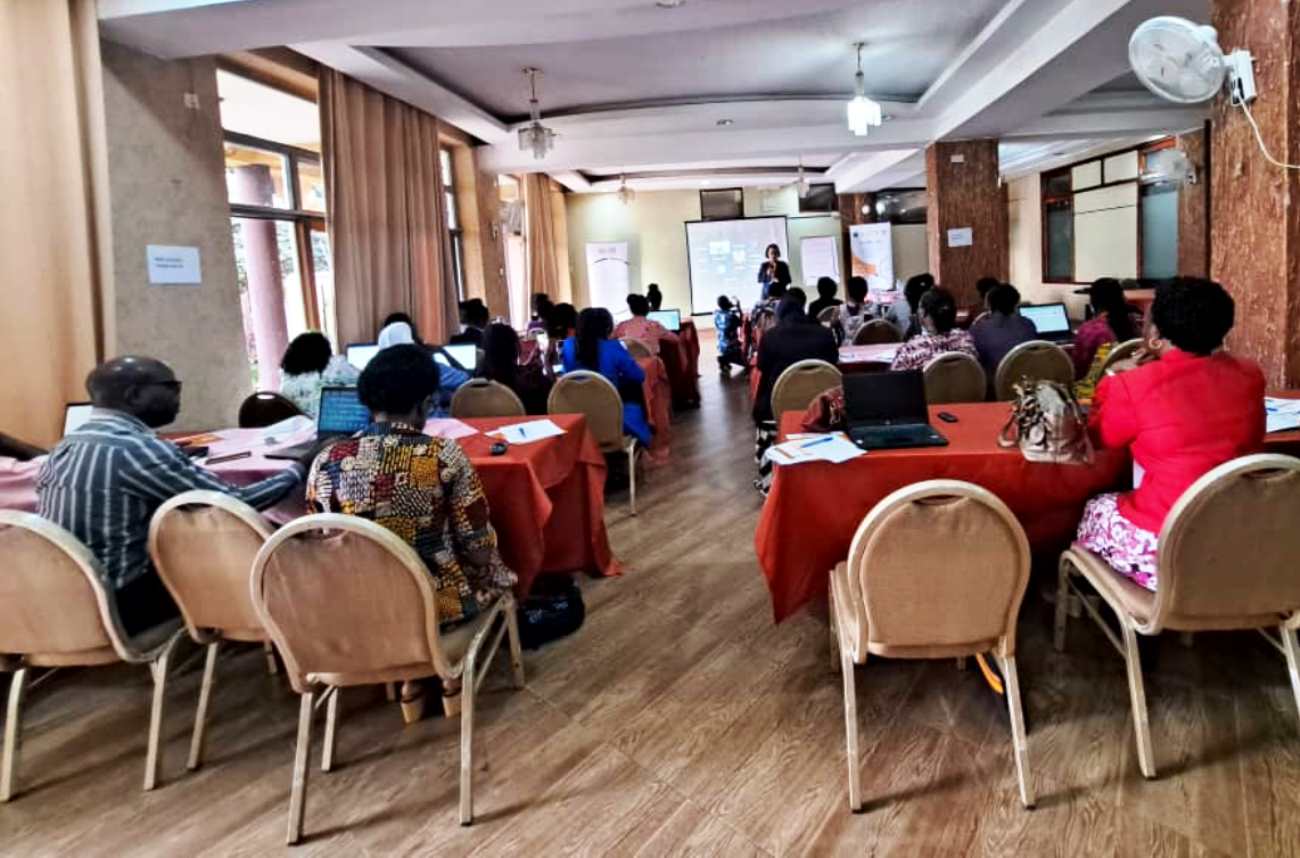Scientists have presented some of the ways Uganda has responded to the Intergovernmental Panel on Climate Change (IPCC) findings. This was during the two day IPCC Fifth Assessment Report, (AR5) outreach event organized by Climate and Development Knowledge Network (CDKN) and College of Agricultural and Environmental Sciences (CAES), Makerere University in conjunction with the Ministry of Water and Environment (MWE). The outreach event was aimed at disseminating the findings of the Report to policymakers, the private sector, researchers and civil society organizations in Uganda.
Convening at Hotel Africana for the day-two plenary sessions and closing ceremony on 22nd August 2014, the stakeholders highlighted the need for the developing countries to improve their awareness and understanding of climate-related risks and implications to their work.
The first session chair for day two, Mr. Paul Isabirye, Coordinator, Department of Climate Change and The United Nations Framework Convention on Climate Change (UNFCCC) Focal Point for Uganda said that Uganda was already experiencing the effects of climate change. He added these effects have led to;
- Increased land degradation due to increased extreme weather events such as droughts and floods, aggravated by poor land-use practices.
- Crop failure or significantly reduced crop production in some years due to increased drought incidences associated with increased climate variability and change.
- Increased hunger and famine due to reduced agricultural productivity.
- Increased pest infestations and other weather related plant pathogens.
- Higher order impacts like increased costs of production, lower profitability, a decrease in food security and therefore a need for more food imports.
Mr Isabirye however remarked that the Government of Uganda has instituted several strategies and institutions to prioritise climate change such as upgrading the Climate Change Unit to a Department of Climate Change and the Department of Meteorology to the Uganda National Meteorology Authority (UNMA).
During the session on policy and practice, scientists from the from Office of the Prime Minister, National Agriculture Resilience Initiative-Ministry of Agriculture, Animal Industry and Fisheries (MAAIF), the National Agricultural Research Organization (NARO), Department of Climate Change (DCC)-MWE, the Makerere University Centre for Climate Change Research and Innovations (MUCCRI) and representatives from the private sector discussed several ways in which Uganda is responding to the findings of the IPCC.
Presenting on behalf of the Private Sector, Ms. Sarah Kibenge from the Private Sector Foundation Uganda (PSFU) remarked that due to the impact of climate change, labor productivity has reduced due to higher incidences of vector-borne diseases, resulting into declining profit margins. Ms. Kibenge said that, several human actions in industrialization, construction and in agriculture are seen as causes and contributors to climate change.
“However we must be keen about Environmental protection. Ugandans has been involved in planting and afforestation activities, environment impact assessment technology, waste management through recycling, packaging using environmentally-friendly materials,” she added.
In her presentation on Disaster Risk Management (DRM) in Uganda, Ms. Jacqueline Kagoda a Disaster Management Officer-OPM, stressed the need for Uganda to create an effective framework through which disaster preparedness and management is entrenched in all aspects of the development processes,
“As the central Coordinating Ministry on Disaster, the Office of the Prime Minister has set guiding principles like, using a multi-sectoral approach, community participation in DRM, public awareness, use of adequate expertise and technology, vulnerability analysis, observation of human rights, and consideration of climate change upon which implementation is premised,” Ms.Kagoda stressed.
“The Ministry has provided Early Warning Systems especially for floods together with UNMA & DCC for a survey is being done in Butaleja District. The National Emergency Coordination and Operations Centre (NECOC) is being equipped with the DRM comprehensive hardware and software such as Arc GIS, Modelling softwares on climate related risks such as floods, Country Programming Paper to end Drought Resilience in partnership with MAAIF is underway, and International DRR and Peace Day Celebrations are being planned” she added.
Talking about National Agriculture Resilience Initiative, Mr. Stephen Muwaya said that the Ministry of Agriculture, Animal Industry and Fisheries MAAIF has adopted a Climate Change Policy and Action Plan,
“The Ministry through this policy and action plan has also promoted and encouraged highly adaptive and productive livestock breeds, conservation agriculture and ecologically compatible cropping systems to increase resilience to the impacts of climate change, Promote sustainable management of rangelands and pastures through integrated rangeland management,” Mr.Muwaya remarked
Dr. Evelyn Komutunga, an Agro-meteorologist at National Agricultural Research Organization (NARO), Kampala Uganda said the organisation had developed strong drought and heat tolerant crop varieties, generating technology for short duration crops, technology for assorted vegetables under horticulture research system, developing a laboratory research institute, carrying out sustainable land management and restoration of degraded land.
“On Climate change adaptation and mitigation, NARO has managed to focus on data management through Crop yield monitoring and projections, and crop suitability mapping information packaging and dissemination (cropping calendars). NARO has also carried out conservation of at least 700 new accessions of 20 core collections and enhanced management for sustainable utilization of selected Plant Genetic Resource, biotechnology systems, diagnostics and processes developed for improved productivity of selected crops,” Dr. Komutunga explained.
In her presentation, the National Programme Coordinator, Africa Climate Change Resilience Alliance (ACCRA), Ms. Margaret Barihaihi, said ACCRA had facilitated Government policymakers to share community-based Climate Change Adaptations/Disaster Risk Reduction (CCA/DRR) implementation lessons at strategic national, regional and international climate change debates.
“The institution has been involved in policy formulation and contributed substantially to the National Climate Change policy 2012, ACCRA has collaborated with the Ministry of Water and Environment in raising awareness and mainstreaming Climatic Change adaptation into Local Government development plans,” she remarked.
Ms. Barihaihi said ACCRA has also collaborated with the Uganda National Meteorological Authority (UNMA) in strengthening seasonal weather forecast and climatic information for local planning.
According to Mr. Chebet Maikut, a representative from the Department of Climate Change (DCC)-MWE, the Government of Uganda has revised some common policy priorities to promote, research and development, transfer and diffusion of technology through the use of appropriate information sharing incentive schemes and support mechanisms as relevant to various sectors concerned.
“The Government of Uganda has also focused on mainstreaming gender to reduce the vulnerability of women and children, supported education, awareness raising and capacity development for a range of stakeholders (government, academics, civil society and private sector) contributing to the National Development Process right from the community level to the national level,” Mr. Maikut said.
On the academic front, Mr. Mfitumukiza David a climate adaptation specialist said the University has set up the Makerere University Centre for Climate Change Research and Innovations (MUCCRI), at the College of Agricultural and Environmental Sciences (CAES).
“Launched in 2013, MUCCRI is motivated by the need to strengthen climate change research, innovations and information dissemination and to also strengthen East African Resilience and Climate Change Adaptation Capacity through Training, Research and Policy Interventions. MUCCRI is structured to work in four thematic areas; Climate Science, Mitigation, Adaptation, Policy, Training and Outreach,” Mr Mfitumukiza said.
During the group discussions focusing on Uganda’s response to the IPCC’s findings, participants were divided into groups and tasked to develop ideas on the opportunities for Uganda to respond to the IPCC findings, through the work of different sectors in managing climate change.
Chaired by Prof. John Baptist Kaddu, Makerere University, the four groups on; Agriculture, Water, Energy and Infrastructure developed recommendations on policy, research and practices that Uganda should adopt, which findings were later shared in a plenary session.
Giving the closing remarks, Mr. Paul Mafabi, Director for Environmental Affairs, MWE said the goals of the outreach program have already been achieved in the two days the gathering was in Uganda, through knowledge and information sharing on the constructive topics.
“I am very confident that all participants are now more informed on these issues. Therefore I do hope that the participants will utilize the knowledge gained here in their duties and also carry it forward to others who were not able to participate in this important event. You have all been given a leadership role in the climate change arena and you are therefore expected to act responsibly to avert the impacts of climate change in good time,” Mr. Mafabi said.
Mr. Mafabi emphasized Uganda’s commitment to keep climate change high on the development agenda through empowering the population with any evolving information to guide in planning and public investments.
Please see Downloads for all presentations from IPCC AR5, Kampala Uganda
Article by Nabatte Prossy, Intern, Public Relations Office
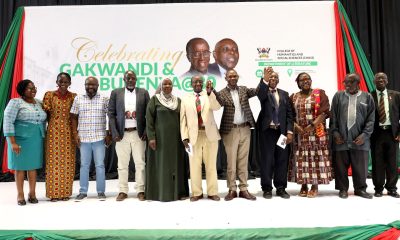
 Humanities & Social Sciences2 weeks ago
Humanities & Social Sciences2 weeks ago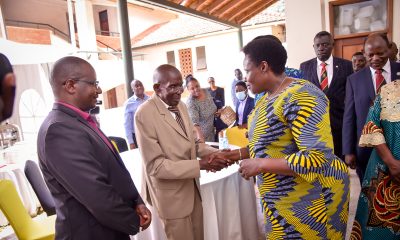
 General4 days ago
General4 days ago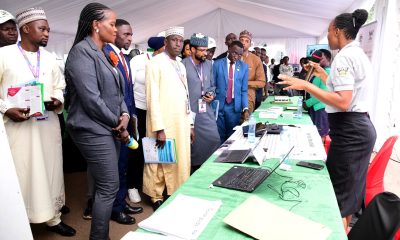
 Computing & IS3 days ago
Computing & IS3 days ago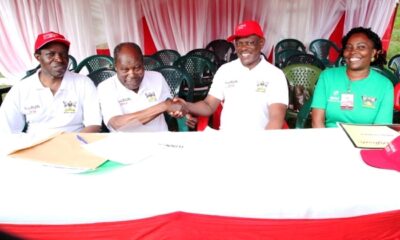
 General4 days ago
General4 days ago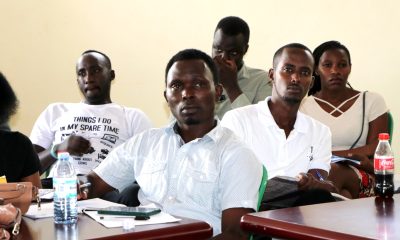
 Veterinary & Biosecurity2 weeks ago
Veterinary & Biosecurity2 weeks ago